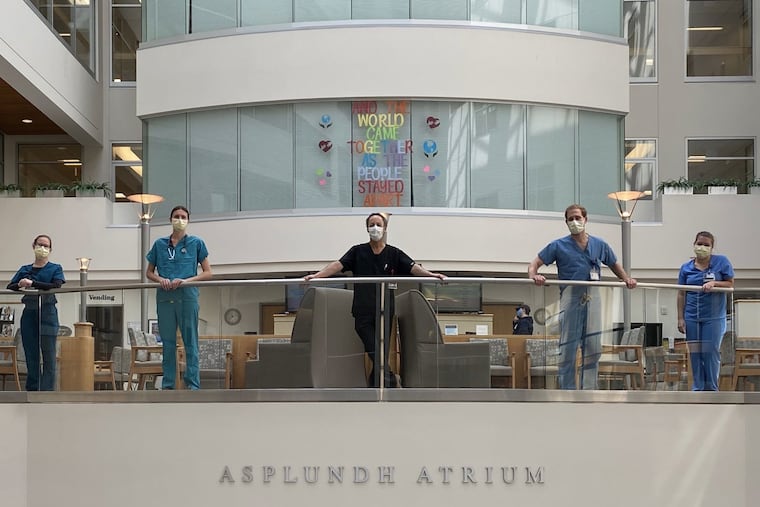3 lessons these doctors learned in caring for COVID-19 patients | Expert Opinion
The lessons we learned in reflecting on the care of patients with COVID-19 have always been available to us. But those lessons have now been crystallized by the magnitude of suffering and the intensity of need.

During the peak week of the COVID-19 epidemic in Pennsylvania, we took time at the end of each morning after rounding on our patients for a few minutes of reflection about how we were feeling. As we talked one morning, it dawned on us that the lessons we discovered were similar to what we might have learned from other patients with other illnesses in the past. What made the experience of caring for patients with COVID-19 distinct was that it was more concentrated: the period of time from when someone was well to when they were severely ill was short; the progression less predictable; the loneliness and isolation that all illness imparts to people was greater because family could not be with patients; and the barriers between our patients and ourselves — barriers which are always there by virtue of differing life experience, culture and attitude — were made worse by layers of protective gear.
Some of the lessons we discovered in treating COVID-19 patients included:
The Importance of Communication. To help patients and their families through this time, a member of our team updates a patient’s family member every day. One day while leaving a patient’s room a thin man in his 80s with wispy grey hair called his doctor back and between heaving breaths pleaded, “When you call my wife later, please remind her that I love her.” Later, when the doctor called his wife and shared the husband’s message, the phone went silent. Then he heard sobbing. She explained they had challenges during their years together — a child who died, losses of jobs and strong disagreements — but they had always been by each other’s side and now she was scared.
COVID-19 reminds us that disease causes chaos in the lives of patients and their families. Knowing what to expect relieves some loss of control and uncertainty that is a byproduct of illness. We were reminded that a simple phone call to a family member is something they wait for all day, and we cannot predict how much it may mean to them.
The Healing Power of Empathy and Touch. An appreciation for empathy and touch is imprinted in our DNA as it communicates content and emotion. When discharging a patient who was intubated due to COVID-19, a 60-year-old man told his doctor that he will always remember when she came into his room and wiped tears from his eyes when he was too weak to do so. We know someone cares about us not just by what they say, but by the way they look at us or how they listen intently to what we say. We have learned that even through foggy face shields, goggles and masks, patients still see and feel our compassion. The lack of family presence is not unique to COVID-19. We have seen this with older patients as families live geographically distant, and the responsibility lies with us to interact with our patients with the human power of being fully present in the room with intentional listening, sharing grief or joy, and providing a healing human touch when needed.
The Need for Compassion. We need to understand the individual needs of each patient. When a 72-year-old woman with intellectual disabilities was alone and afraid in the hospital, she shared with her doctor that she liked coloring. The doctor then walked to the pediatric ward and found a coloring book and crayons for the patient. For the next four days she smiled while she colored. We often take for granted how a kind word or gesture can change another person’s experience.
All suffering contains hidden lessons that can be sought and earned. If we search for those lessons we might become better people and better doctors for having made the effort.
The lessons we learned in reflecting on the care of patients with COVID-19 have always been available to us. But those lessons have now been crystallized by the magnitude of suffering and the intensity of need. We also realized that as we move forward it will be important for us all to remember this day, to recognize we were there when others needed us, and that while caring for others we re-discovered deep lessons that we had always known.
Neil Skolnik is a professor of family and community medicine in the Sidney Kimmel Medical College of Thomas Jefferson University and associate director of the family medicine residency program at Abington Jefferson Health; Carolyn Sciblo is a second year resident, Danielle Peters is a third year resident, and Christopher Azzolino, Morgan Katz and Evan Gooberman, are interns in the Abington-Jefferson family medicine residency in Abington, Pa.